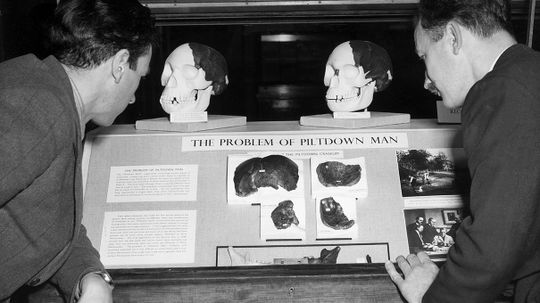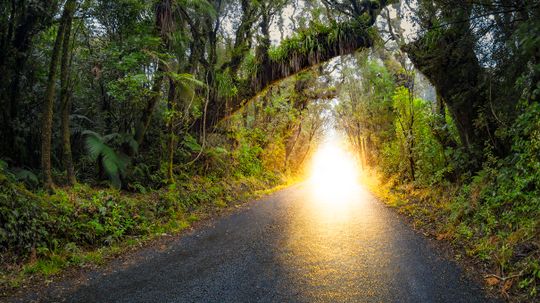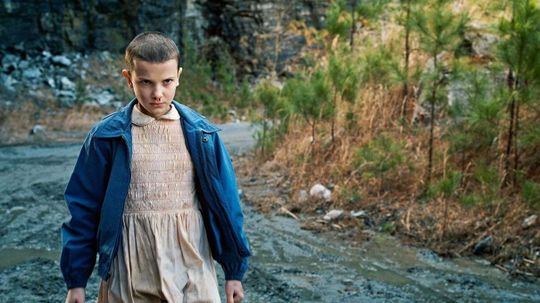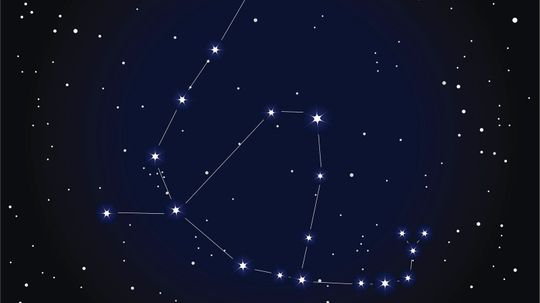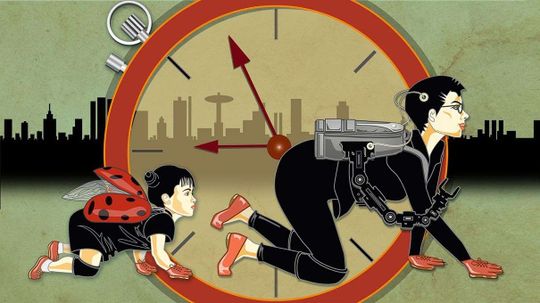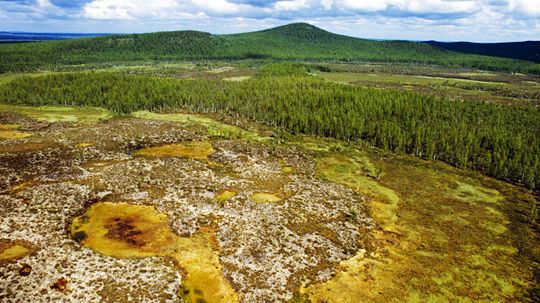Science Versus Myth
Are vampires real? What is an out-of-body experience? Are crop circles proof that aliens exist? HowStuffWorks explores what is real and what is urban legend with this collection of Science Versus Myth articles.

Top 10 Ghost Tours

Top 10 Hotels That Will Scare the Daylights Out of You

What's So Scary About The Winchester House Story?
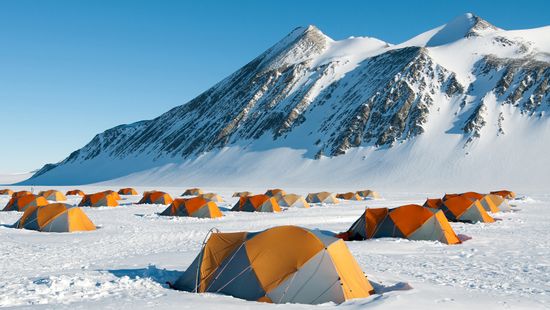
The Pyramid in Antarctica Isn't Actually a Pyramid

The Spiritual Awakening Signaled by the 757 Angel Number

8888 Angel Number Meaning: Prosperity, Abundance, and Spiritual Growth

Spirit Guides Bring Believers Comfort, Insight, and Aid

Psychic Powers: Fun to Consider, Even Without Scientific Support

How to Manifest Love: Merging Mind and Heart

What Is a Group of Dragons Called? It's Almost Too Obvious

The Beast of Bray Road: Wisconsin's Claim to Cryptid Fame

Lougawou: A Haitian Vodou Werewolf

Do Marfa Lights Come From UFOs, Cars, the Military or Ghosts?

Solfeggio Frequencies: Healing Tones or Pseudoscience?

Is Sacred Geometry Related to Science or Is It Simply Beautiful?

What If Cows Didn't Exist?

What If Earth's Magnetic Field Flipped?

What If Humans Could Breathe Underwater?
Learn More / Page 18
Leap years only come around once every four years. So, why are they so rare and who decided we need them anyway?
Einstein showed us a mind-blowing way the universe works, while Max Planck and his gang showed us how particles on the atomic and subatomic levels work. But one doesn't explain the other. So there must be a larger theory encompassing them ... or not?
What does 444 really mean for your life, love, and future? Don't ignore this sign. Discover the shocking truth behind angel number 444 now.
By Jonathan Strickland, Melanie Radzicki McManus & HowStuffWorks
Advertisement
Explore the world of tattoo meanings! Decode the symbolism, culture, and significance behind various tattoo designs. Ink your story with purpose.
By HowStuffWorks
Move over, mediums. Lots of people say they talk to the dead, including the bereaved. Ready to meet a few others?
It's a 15-foot man-beast with glowing eyes, doglike teeth, a long tongue and no lips. Gray skin sags off its skeletal frame. We're talking about the wendigo. And it's coming to get you.
A key ingredient of horror films, junior-high slumber parties and occult practices, the Ouija board has been fascinating and scaring people for more than a century. But does it really contact the spirit world, or is there a more logical explanation?
By Julia Layton
Advertisement
We all eat things we probably shouldn't, and that's OK from time to time. But there are some foods that are such nutrition bombs that even occasional indulgence isn't exactly wise.
Blood-sucking vampires and brain-munching zombies tend to hog all the undead credit, but we think ghouls deserve a macabre article all their own. Read it -- if you dare.
By Robert Lamb
Made of plain pine or shaped like a shoe, mourners may inter them, suspend them or set them ablaze. How much do caskets and coffins differ?
These booming sounds are part of a mysterious phenomenon that's occurred for years around the U.S. and elsewhere in the world.
Advertisement
Are strange skeletons unearthed across the globe evidence that we're not alone, or are they simply more myths and legends that are bound to be debunked?
By Diana Brown
There's no doubt people are seeing lights. But are they really spirits of ghosts - or even aliens - or can these unusual lights be clarified with a simple explanation?
By Diana Brown
If mental strain caused a bloody nose, academic testing sites would be awash in crimson. So why do we still see psychic nosebleeds from "Stranger Things" to "Scanners"?
Is 'Jim Wilson' really a code name airlines use to refer to a corpse being transported on a plane? Or just an urban myth?
Advertisement
Dragon fire is an awe-inspiring thing, but exactly how would it happen? Real-world clues from nature point the way.
Thousands of years ago, the Babylonians created the zodiac and dropped a constellation when it didn't quite fit into their schematic. Its name? Ophiuchus. Should it be part of our horoscope?
Humans have only been bipedal for a sliver of history. What if we returned our spines to their original position and quit walking upright? What would that world be like?
A bunch of Yale physicists decided to give Schrodinger's cat not one but two boxes. And that, strangely enough, could eventually prove handy for quantum computing.
By Julia Layton
Advertisement
Can infrasound explain away ghosts, hauntings and other paranormal activity?
By Diana Brown
When a super-realistic android or video character gives us a creepy feeling, it enters the uncanny valley. Why do we get spooked, and what can we do to avoid it?
CERN's work has been groundbreaking to say the least, but conspiracy theories run rampant about the potential disasters it could cause, too.
By Diana Brown
Theories surrounding the source of the Tunguska blast that rocked the Siberian region in 1908 abound. But the exact cause is still a mystery.
By Diana Brown
Advertisement
Straitjacket sales may be low, but people still make them, and they definitely still use them.
Does everyone's favorite Wookiee call Bigfoot family?
By Robert Lamb











